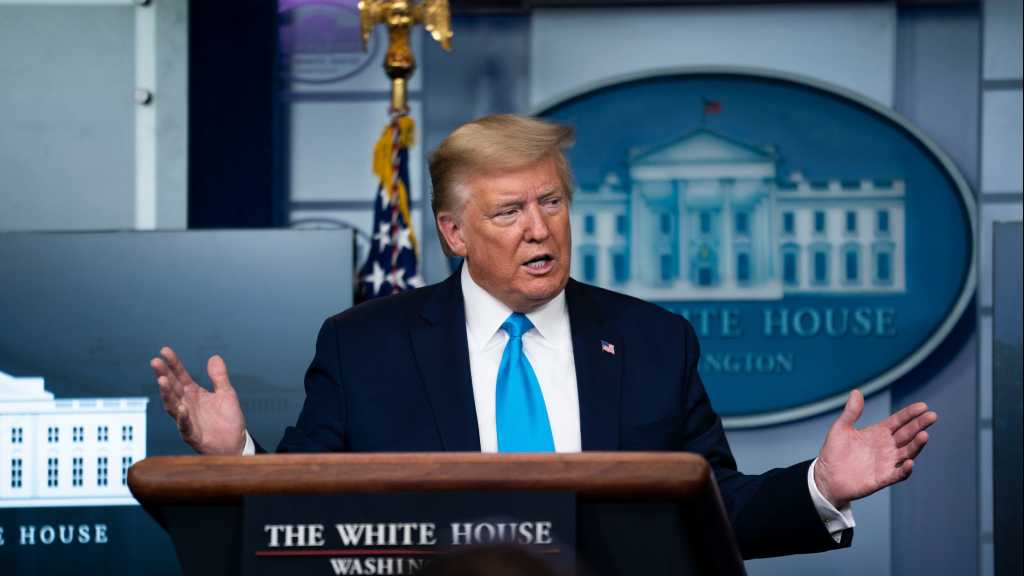The Idiocy of Wall Street: Applauding Its Own Demise

Source: mises.org/Ludwig von Mises Institute, 24-09-2008
By Don A. Rich
The vertigo factor in the last two weeks of the stock market has been high: down 400 points, down 400 points, up 400 points, down 400 points, up... Which is it, one wants to know, because to have the answer as to the state of the future would relieve anxiety in the short run, even though the things we do to relieve short-run anxiety often cause long-term calamity.
Things like nationalizing the finance industry of the United States, which is, effectively speaking, the consequence of Federal Reserve and Treasury actions of the last two days.
The humor factor in the rally of last week has been far higher than the vertigo factor, however, as Wall Street bizarrely applauds the nationalization of the finance industry. I like to be less anxious, but not at the expense of socialism - or more likely fascism, the latter of which (when you listen carefully to the drumbeat for war with target of the month, Pakistan) is the clear direction of US policy.
Maybe former Treasury Secretary Paul O'Neil was right about those guys in front of the green trading screens on Wall Street being trained monkeys, because the actions and announcements emanating from the federal government have been anything but good for the wealth-creation mechanisms of capitalism, or for the future of liberty for that matter.
We were told less than six weeks ago by the Congressional Budget Office that the taxpayers may have to spend up to $25 billion dollars bailing out Fannie Mae and Freddie Mac. Secretary Paulson and Federal Reserve Chairman Bernanke assured us that beyond that, all was well. Why is anyone still listening to Paulson and Bernanke?
The announced bailout plans six weeks later have costs that Paulson and Bernanke now admit will run at least into the hundreds of billions of dollars. But why is anyone still listening to Paulson and Bernanke?
Given the economics discussed below, and the government's lack of credibility to date, the real costs will now clearly run into the high trillions. The question is, who will get stuck with the losses and how will that loss-distribution process be handled? For Wall Street to applaud the prospect of the upcoming events is lunacy. Why is anyone listening to Paulson and Bernanke?
The world economy has just been subjected by its central bankers (including Bernanke as vice chair under Greenspan and encouraged by Paulson at Goldman Sachs) to the largest credit bubble in history.
Not only residential real estate, but also corporate, developing market, and nonsecured debt security and loans have been priced at absurd valuations because the central banks of the world kept interest rates at absurdly low levels during the early part of the decade.
The consequence of this "open the floodgates" monetary-policy-induced credit bubble was to induce the entire financial services industry to distort the process assessing risk and reward in the allocation of capital on a system-threatening scale - hence the events of earlier this week.
Basically, the central banks of the world pushed interest rates so low as to lure the finance
industry into the trap of chasing yields irrespective of risk.
For example, Brazilian government debt used to trade at 1,000 basis points above Treasuries, dropping in the bubble to a low of a 200 basis-point differential, which was clearly absurd, even with the happy pro-capitalist surprise of Lula, and a type of central-bank-induced yield-chasing drop in risk differentials that pervades the world capitalist system due to the actions of people like Greenspan, Bernanke, and Paulson. (Paulson should not be allowed to escape the fact that, as CEO of Goldman Sachs during this period, he had plenty of chances to speak up, and said nothing.)
The resulting central-bank-induced disequilibrium relationships between price and risk is bound to generate massive movements in the prices of debt instruments back to their equilibrium relationship, a process that in its infancy has already destroyed the capital of the world's private-banking systems.
Why is anyone listening to the central bankers and Bernanke and Paulson if they caused the problem in the first place?
The biggest obstacle to correct action going forward is that no one in the financial industry or press is asking the right questions.
The federal government - through the Department of the Treasury and the Federal Reserve - is now committed to assuming the entire credit risk of the financial-services industry of the United States, and quite possibly much of the industrialized world. The US government itself is already insolvent in an inter-temporal sense, with a budget deficit over time of $30 trillion in present discounted-value terms. How the federal government's assumption of the American and world financial systems' risks is supposed to be credible on a long- or even medium- and short-term basis is totally unclear.
Moreover, Bernanke and Paulson still maintain in effect that we are experiencing some kind of hiccup now, which, if the feds temporarily take charge, can somehow be papered over without huge losses somewhere.
In a bubble, asset prices are by definition far above equilibrium values. The federal government is now committed to guaranteeing the difference between the real equilibrium values of all debt securities and their stated/nominal value, which was created during the greatest credit bubble in history.
That difference between nominal and equilibrium/real value must by definition be a massive number because of the extent of the credit bubble, on the order of $5 trillion dollars in the United States alone.
Unlike the short-attention-span monkeys of Wall Street, the reasonable analyst will conclude that all the federal government's options for making up the difference between nominal and real values have bad implications for Wall Street.
Before moving on to a more formal analysis, the federal government is now admitting that the entire credit-generation process in the United States has collapsed. Going forward, that is bad news for the real economy - for the claims on the profit-generating capacity of the economy upon which the stock market constitutes claims. This is all bad news, not good news, for Wall Street.
More formally, there is a gap between the nominal and real value of debt instruments that across the entire credit spectrum easily exceeds $5 trillion, the risk of which the federal government has assumed.
There are three possibilities that in combination cover all the bases for possible governmental actions.
First, the federal government raises taxes to pay off the difference. That clearly isn't good news for Wall Street or the wealth-creation process.
Second, the Federal Reserve System prints enough money to prop up debt-security prices at nominal values over time, thereby bringing about equilibrium by raising the prices of everything else. A borderline hyperinflation isn't good news for Wall Street.
Third, perhaps in some instances the federal government seizes the assets of the financial industry at fire-sale prices, and therefore inflicts the loss on shareholders and private creditors in a bizarre form of monetary-policy-induced, catastrophe-driven socialism or fascism.
Well, that isn't good news for Wall Street and the wealth-generation process and, as the above scenarios cover all the possibilities, none of this is a good sign. It is a sign, rather, that we have allowed our monetary, fiscal, and regulatory authorities to lure us like lambs to the slaughter to the unwarranted socialization of the most important sector of the capitalist system.
By Don A. Rich
The vertigo factor in the last two weeks of the stock market has been high: down 400 points, down 400 points, up 400 points, down 400 points, up... Which is it, one wants to know, because to have the answer as to the state of the future would relieve anxiety in the short run, even though the things we do to relieve short-run anxiety often cause long-term calamity.
Things like nationalizing the finance industry of the United States, which is, effectively speaking, the consequence of Federal Reserve and Treasury actions of the last two days.
The humor factor in the rally of last week has been far higher than the vertigo factor, however, as Wall Street bizarrely applauds the nationalization of the finance industry. I like to be less anxious, but not at the expense of socialism - or more likely fascism, the latter of which (when you listen carefully to the drumbeat for war with target of the month, Pakistan) is the clear direction of US policy.
Maybe former Treasury Secretary Paul O'Neil was right about those guys in front of the green trading screens on Wall Street being trained monkeys, because the actions and announcements emanating from the federal government have been anything but good for the wealth-creation mechanisms of capitalism, or for the future of liberty for that matter.
We were told less than six weeks ago by the Congressional Budget Office that the taxpayers may have to spend up to $25 billion dollars bailing out Fannie Mae and Freddie Mac. Secretary Paulson and Federal Reserve Chairman Bernanke assured us that beyond that, all was well. Why is anyone still listening to Paulson and Bernanke?
The announced bailout plans six weeks later have costs that Paulson and Bernanke now admit will run at least into the hundreds of billions of dollars. But why is anyone still listening to Paulson and Bernanke?
Given the economics discussed below, and the government's lack of credibility to date, the real costs will now clearly run into the high trillions. The question is, who will get stuck with the losses and how will that loss-distribution process be handled? For Wall Street to applaud the prospect of the upcoming events is lunacy. Why is anyone listening to Paulson and Bernanke?
The world economy has just been subjected by its central bankers (including Bernanke as vice chair under Greenspan and encouraged by Paulson at Goldman Sachs) to the largest credit bubble in history.
Not only residential real estate, but also corporate, developing market, and nonsecured debt security and loans have been priced at absurd valuations because the central banks of the world kept interest rates at absurdly low levels during the early part of the decade.
The consequence of this "open the floodgates" monetary-policy-induced credit bubble was to induce the entire financial services industry to distort the process assessing risk and reward in the allocation of capital on a system-threatening scale - hence the events of earlier this week.
Basically, the central banks of the world pushed interest rates so low as to lure the finance
industry into the trap of chasing yields irrespective of risk.
For example, Brazilian government debt used to trade at 1,000 basis points above Treasuries, dropping in the bubble to a low of a 200 basis-point differential, which was clearly absurd, even with the happy pro-capitalist surprise of Lula, and a type of central-bank-induced yield-chasing drop in risk differentials that pervades the world capitalist system due to the actions of people like Greenspan, Bernanke, and Paulson. (Paulson should not be allowed to escape the fact that, as CEO of Goldman Sachs during this period, he had plenty of chances to speak up, and said nothing.)
The resulting central-bank-induced disequilibrium relationships between price and risk is bound to generate massive movements in the prices of debt instruments back to their equilibrium relationship, a process that in its infancy has already destroyed the capital of the world's private-banking systems.
Why is anyone listening to the central bankers and Bernanke and Paulson if they caused the problem in the first place?
The biggest obstacle to correct action going forward is that no one in the financial industry or press is asking the right questions.
The federal government - through the Department of the Treasury and the Federal Reserve - is now committed to assuming the entire credit risk of the financial-services industry of the United States, and quite possibly much of the industrialized world. The US government itself is already insolvent in an inter-temporal sense, with a budget deficit over time of $30 trillion in present discounted-value terms. How the federal government's assumption of the American and world financial systems' risks is supposed to be credible on a long- or even medium- and short-term basis is totally unclear.
Moreover, Bernanke and Paulson still maintain in effect that we are experiencing some kind of hiccup now, which, if the feds temporarily take charge, can somehow be papered over without huge losses somewhere.
In a bubble, asset prices are by definition far above equilibrium values. The federal government is now committed to guaranteeing the difference between the real equilibrium values of all debt securities and their stated/nominal value, which was created during the greatest credit bubble in history.
That difference between nominal and equilibrium/real value must by definition be a massive number because of the extent of the credit bubble, on the order of $5 trillion dollars in the United States alone.
Unlike the short-attention-span monkeys of Wall Street, the reasonable analyst will conclude that all the federal government's options for making up the difference between nominal and real values have bad implications for Wall Street.
Before moving on to a more formal analysis, the federal government is now admitting that the entire credit-generation process in the United States has collapsed. Going forward, that is bad news for the real economy - for the claims on the profit-generating capacity of the economy upon which the stock market constitutes claims. This is all bad news, not good news, for Wall Street.
More formally, there is a gap between the nominal and real value of debt instruments that across the entire credit spectrum easily exceeds $5 trillion, the risk of which the federal government has assumed.
There are three possibilities that in combination cover all the bases for possible governmental actions.
First, the federal government raises taxes to pay off the difference. That clearly isn't good news for Wall Street or the wealth-creation process.
Second, the Federal Reserve System prints enough money to prop up debt-security prices at nominal values over time, thereby bringing about equilibrium by raising the prices of everything else. A borderline hyperinflation isn't good news for Wall Street.
Third, perhaps in some instances the federal government seizes the assets of the financial industry at fire-sale prices, and therefore inflicts the loss on shareholders and private creditors in a bizarre form of monetary-policy-induced, catastrophe-driven socialism or fascism.
Well, that isn't good news for Wall Street and the wealth-generation process and, as the above scenarios cover all the possibilities, none of this is a good sign. It is a sign, rather, that we have allowed our monetary, fiscal, and regulatory authorities to lure us like lambs to the slaughter to the unwarranted socialization of the most important sector of the capitalist system.




